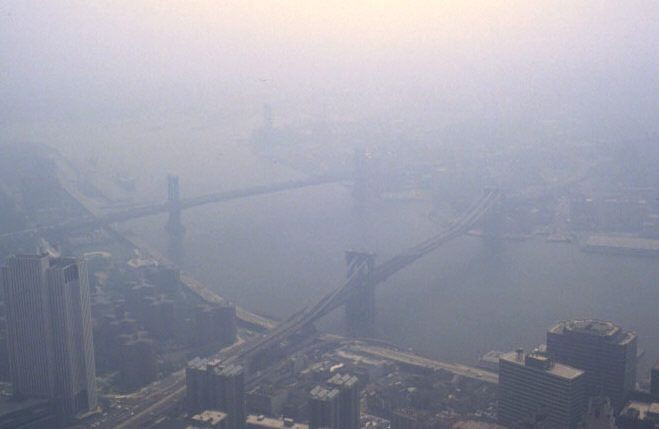Air Pollution In Large Cities Increases Cardiovascular Risk

People living in large metropolitan areas may have to add hardening arteries to their list of potential dangers. A new study claims that airborne particles in pollution may be increasing the risk of cardiovascular disease for city dwellers.
Atherosclerosis, also known as hardening arteries, occurs after an abundance of plaque buildup in the artery walls caused by too much cholesterol, sugar or fat. Hardened arteries can also be an indicator of high blood pressure levels, diabetes, and certain heart disorders.
Researchers used data from the Multi-Ethnic Study of Atherosclerosis that involved a baseline of 6,814 participants when it was started back in 2000. Participants were analyzed for intima-medial thickness, IMT, levels in the carotid artery.
Participants in MESA were asked to fill out a questionnaire that assessed any preexisting medical conditions; medications they were currently taking; race or ethnicity; where they were from within the United States; and current levels of high-density or low-density lipoprotein, cholesterol, and other inflammatory markers.
All participants were from one of six locations in the US including South Bronx and Northern Manhattan, NY; Chicago, IL; Forsyth County, NC; Los Angeles County, CA; St. Paul, MN and Baltimore, MD.
Using state-of-the-art ultrasound technology, lab technicians were able to capture images of the thickness of the carotid artery wall. In total, three pictures were taken over time to evaluate the progress of the condition.
The results of their investigation not only showed a larger concentration of pollution particles in these six heavily populated areas, but even larger concentrations near major highways. Researchers also noticed a faster development of pollution matter in the cardiovascular system with people living in these six major cities.
Lead author of the study Sara Adar stated, "Overall, these results for IMT (intima-medial thickness) in the first three exams of a large, multi-center, population-based cohort study support the hypothesis that PM2.5 (fine particle matter) may be associated with the progression of atherosclerosis, even at levels below existing regulatory standards."
"Such a pathway would lend further support to reported associations between air pollution and the incidence of clinical cardiovascular disease."
Past studies have highlighted the unhealthy side effects of exposure to pollution particles with carotid intima-medial thickness and how it may play a role in cardiovascular risk.
Published by Medicaldaily.com



























